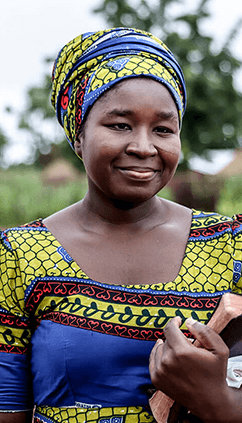The Price of Serving Jesus in India
It was a scorching afternoon in a remote village in central India.
I had come to interview two church leaders and hear firsthand accounts of the persecution they face, stories often overlooked by the mainstream media.
What I found was a disturbing tapestry of fear, intimidation, and violence woven into the backdrop of the faith and resilience of those who have suffered for their belief in Christ.
Mahesh’s Unwavering Faith
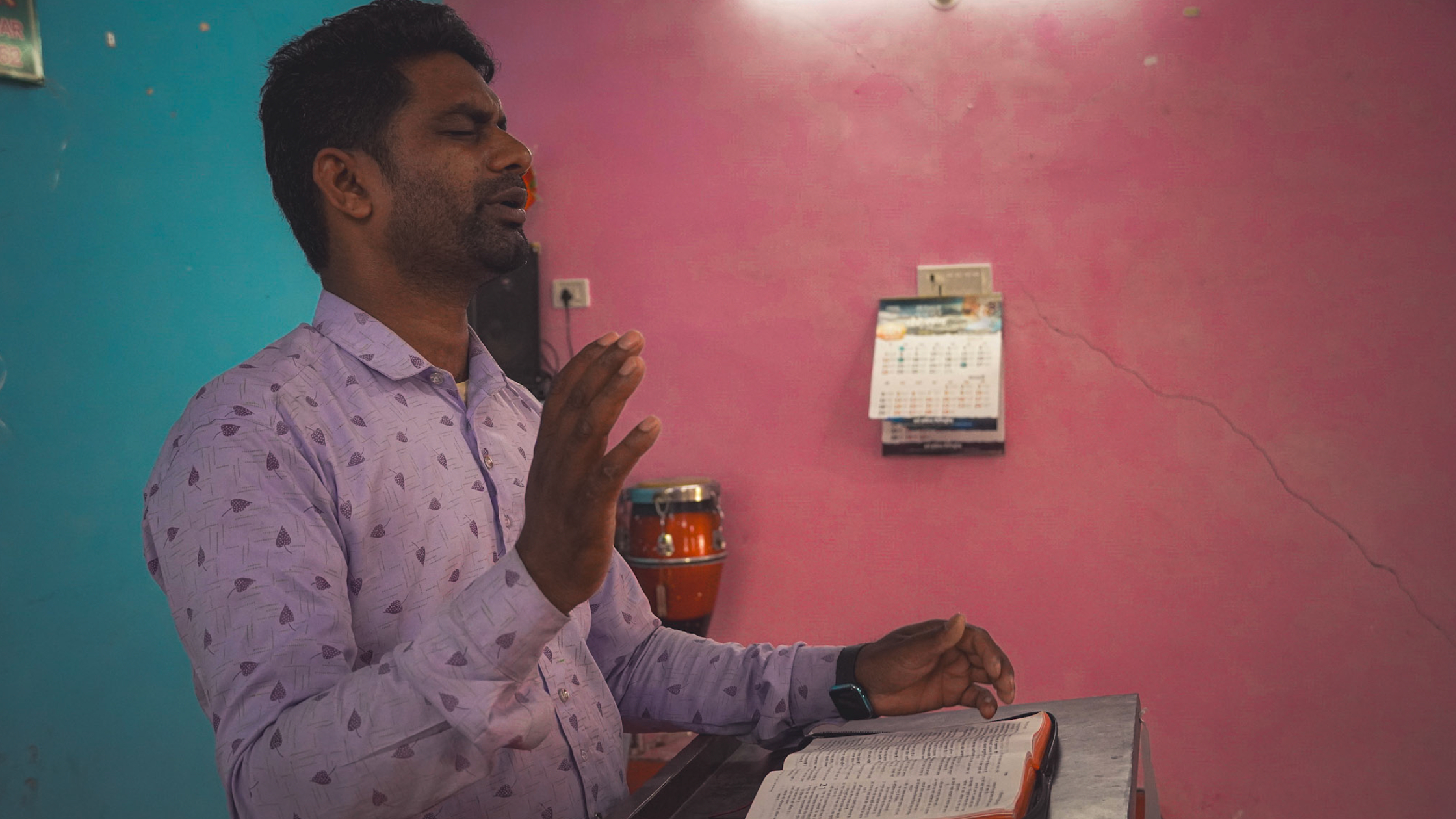
Pastor Mahesh stands at the church pulpit where 200 believers gather for worship every Sunday. Recently, religious extremists stormed the church, accusing him of forcibly converting people. The church is now closed, and Pastor Mahesh and his congregation are fighting the charges with legal authorities. In the meantime, he continues to conduct church services online.
My journey began in a distant village, where I met Mahesh, a fearless pastor with a steely resolve. His story was one of quiet faith tested by fire. Mahesh’s conversion to Christ had ostracized him from his family and community. He was cast out of his home, denied his inheritance, and subjected to relentless harassment. Yet, his spirit remained unbroken.
“I was thrown out of the house,” Mahesh said; his only crime was that he followed Jesus. His father threw his Bible and kicked him out of the house, so that he could never return.
“The villagers threatened me, beat me, and even tried to destroy our church. But our faith in Jesus only grew stronger,” he narrated, his eyes filled with pain and defiance.
After attending Bible League’s Church Planter Training, Mahesh was better equipped to share the Gospel and disciple new believers.
He built a church, a modest structure constructed with the sweat and tears of his congregation, that became a sanctuary for those seeking solace and strength in the face of persecution. The training also empowered Mahesh to train others in the church, who had been instrumental in inviting many villagers to the church.
“The training taught me about evangelism and gave me a passion for the lost. It also gave me practical training to share the Gospel with the villages here,” Mahesh says. “I taught our church members from the training, who have led many members to the church.”
But even this 200-member church was not immune to the rising tide of intolerance. Just weeks before my arrival, a mob of Hindu extremists, emboldened by the state’s new anti-conversion law, stormed the church, disrupting services and threatening the worshippers.
“Jai Sri Ram,” they shouted, meaning ‘Hail Ram,’ a phrase invoking the Hindu god and often used to assert dominance over religious minorities. The church members were terrified and scattered as they were beaten with sticks.
Mahesh, however, did not run.
He was used to the intimidation tactics of the religious fanatics. They are members of the Rashtriya Swayamsevak Sangh or RSS, the political youth wing of the Bhartiya Janata Party, the ruling government of India.
“They kept beating us, did not even spare women or children,” said Mahesh, who bravely faced the violent mob.
The pastor was charged with ‘forced conversions’ — forcefully converting the local Hindus to Christianity, a charge that he denied.
“They told us to stop praying, to renounce our faith, or face the consequences,” Mahesh recalled. “But we will not be silenced. We will continue to worship our God, no matter the cost.”
Now, Pastor Mahesh is training his church members using Project Philip Bible studies from Bible League International in online services. He has raised leaders from the church who have pioneered two branch churches in nearby villages.
The hunger for the Gospel continues to grow in the face of violence and persecution. “What I have learned, I teach it to our believers,” says the well-known, respected pastor.
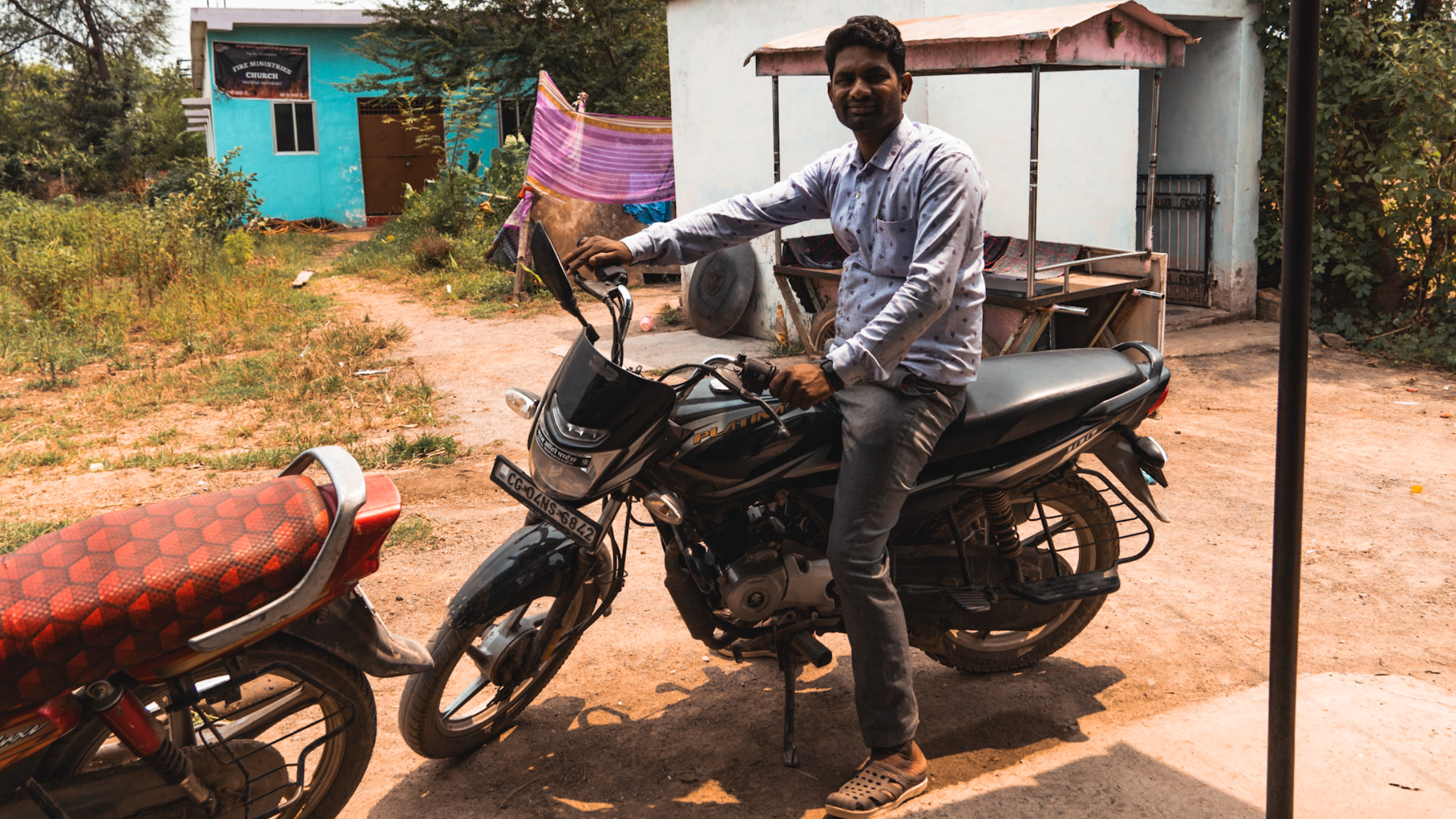
Pastor Mahendra on his motorbike, his only means of commuting across villages on roads and off-roads, often with his wife and two young children. Motorbikes are common in villages, offering a quick and practical solution where public transport is limited.
A Widespread Crisis
Mahesh’s story is not an isolated incident. Across northern India, Christians are targeted under the guise of anti-conversion laws.
These laws are aimed to prevent forced conversions, but they are increasingly used to harass and intimidate religious minorities. These laws, often vaguely worded, have created a climate of fear and suspicion. The mere act of practicing one’s faith can invite violence and persecution. But this is more than well-meaning laws.
The organized assault against Mahesh’s church was propelled by a growing anti-Christian hysteria that is spreading across this vast nation. For example, Uttar Pradesh’s Prohibition of Unlawful Conversion of Religion Act, 2021 is typical. Section three provides that “no person shall convert or attempt to convert” another individual, directly or otherwise, by “misrepresentation, force, undue influence, coercion, allurement or by any fraudulent means.” Violations of section three are punishable by prison terms between one and five years and a fine of at least 15,000 Indian rupees ($180).
Punishments are enhanced if an individual converts or attempts to convert a minor, woman, or person belonging to a Scheduled Caste or Tribe or if a mass conversion in contravention of section three takes place.
This anti-conversion law has been controversial because it infringes on Article 25 of the Indian Constitution, which guarantees the freedom of conscience and the freedom to profess, practice, and propagate religion to all citizens.
The controversy surrounding this law is further fueled by its potential for misuse. The anti-conversion law criminalizes even the act of sharing or distributing Bibles, which is misinterpreted as ‘allurement’ or ‘undue influence,’ a misinterpretation that could have serious implications for religious freedom.
Anti-Christian vigilantes are sweeping through villages, storming churches, burning Christian literature, attacking schools, and assaulting worshippers. The very act of worship has become perilous in church despite constitutional protections for freedom of religion.
Mahesh shares an incident where the villagers threatened his landlord to evict him because he conducted prayer at home. “Mahesh believes in Jesus Christ. He tells a lot of people about Jesus. You should throw him out of your house, or if you won’t, we will throw you out of our society,” the villagers threatened the landlord, who was also a Christian. The landlord had no option but to politely ask Mahesh to vacate with his wife and two young children.
Today, Pastor Mahesh and the church members cannot gather for worship due to legal restrictions. But that does not stop him.
He hosts online services and, though his local church was closed, his ministry has expanded in nearby villages to two sister churches.
These churches are still active and ministry is growing despite the challenges.
The local newspaper and TV ran stories about the assault on Pastor Mahesh and the church. He boldly tells the police that he only shares Jesus with the people and does not force anybody. “They interviewed our church members, and everyone denied being forced. The police left empty-handed as they could not prove their case,” Mahesh shared.
A Woman Empowered
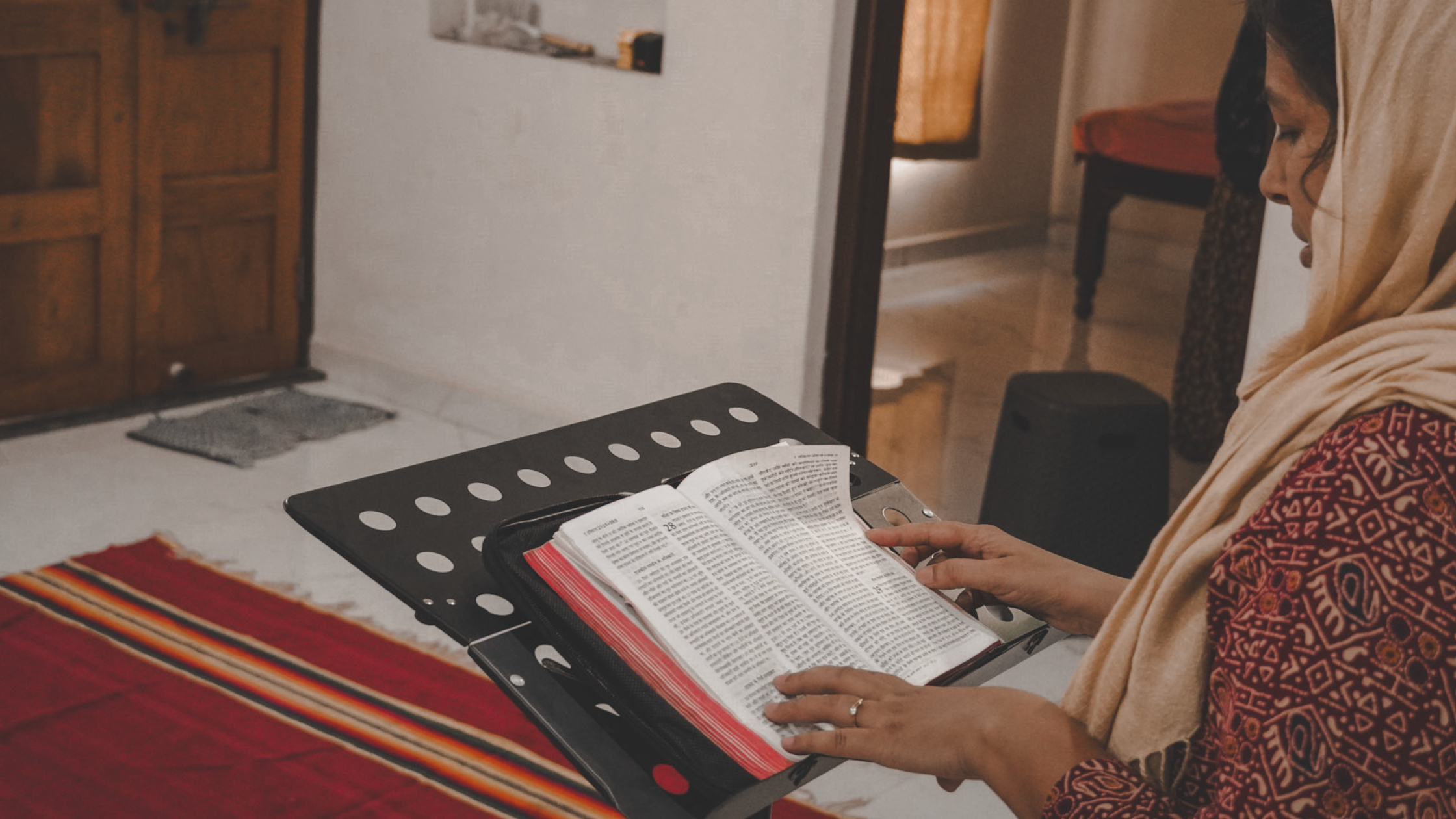
Chandan initiated an informal fellowship prayer and Bible study group, which grew into a house church. With around 20-25 women attending, the church was flourishing until religious fanatics, accompanied by police, raided her home and issued dire warnings to cease all religious services.
My next stop, a 50-mile drive from Mahesh’s community, is a town heavily overshadowed by the threat of persecution. Here, I met Chandan, a young woman whose journey to Christianity had been fraught with challenges.
Chandan, who came from a Jain family, had faced opposition from her father and community when she embraced her new faith. Jainism is an ancient religion, different from Hinduism, that teaches that the way to liberation and bliss is to live a life of ahimsa or non-violence and renunciation.
Those who practice Jainism will not even kill bugs.
Chandan was drawn to Jesus after her mother’s miraculous healing. “The Word of God touched me,” she recounted, “and after that, I learned that this is the true God.”
Her conversion was not without its challenges.
Her father, a staunch Jain, opposed her new faith, and she faced prejudice from her community. Yet, she persevered, finding strength in her growing relationship with Jesus. “I was very sorrowful and depressed,” she admitted, reflecting on her life before Christ. “But I’m not like that anymore. I have changed a lot.”
“They called me a black sheep, a disgrace to my family,” Chandan shared, her voice touched with sadness. “But I knew in my heart that I had found the truth. I could not deny Jesus, even if it meant losing everything.”
Hope Amidst Persecution
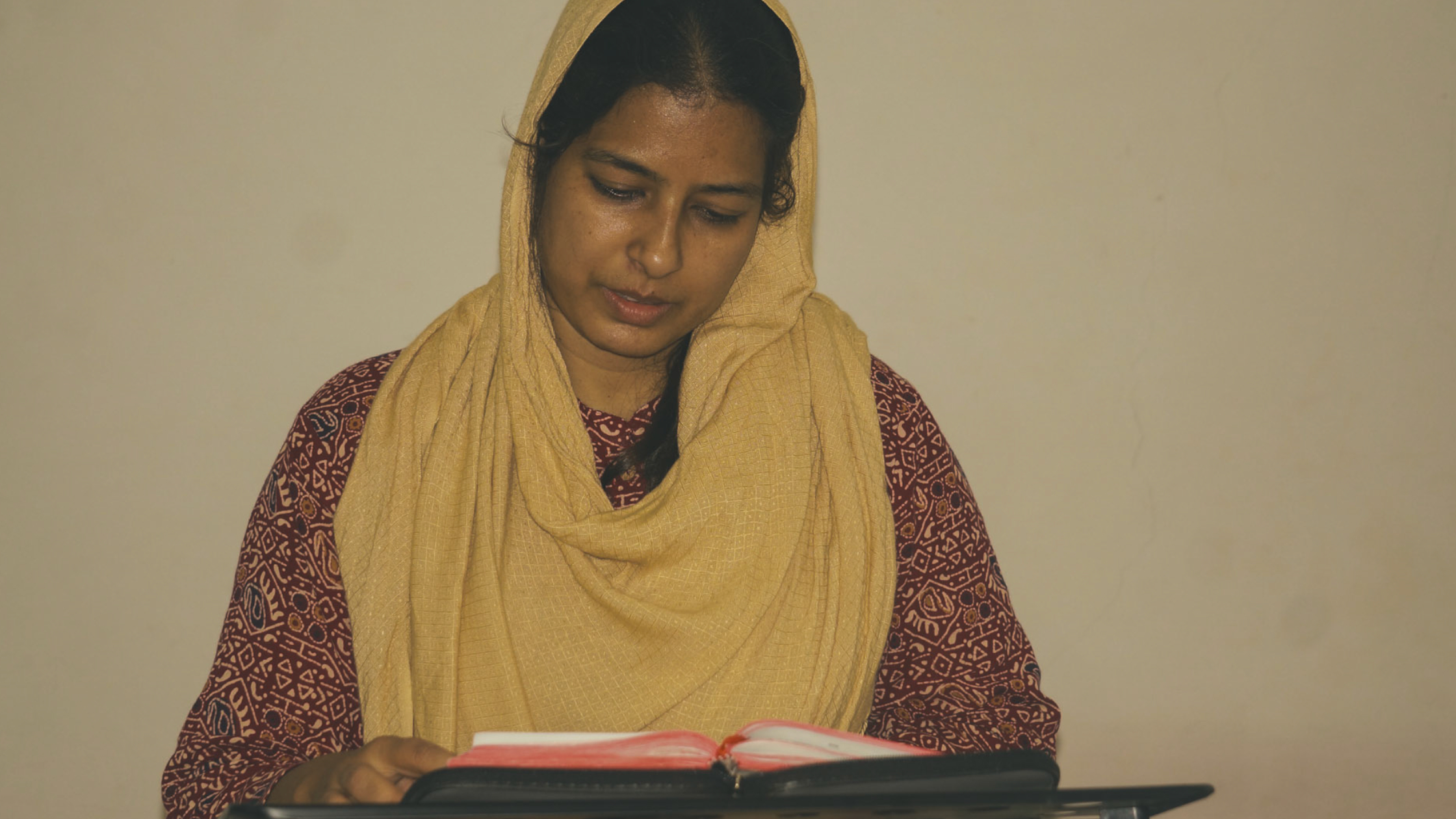
Chandan at the pulpit, where she regularly taught God’s Word to about 20-25 women. Today, the room is empty as the police and village leaders have threatened her with dire warnings if she continues conducting prayer meetings at her residence.
Chandan’s faith had not only transformed her life but also led her to ministry. She focused on nurturing and empowering believers, helping them deepen their understanding of the Bible and experience the life-changing power of the Holy Spirit.
“I fill their lives with the Word, with Jesus,” she shared. “I lead them in worship, and they automatically experience deliverance.”
The small informal gathering grew into a house church, providing a safe space for fellow Christians, primarily women, to worship and fellowship. Her mother and sister are also believers.
They support her even though her father is against her faith. But even this humble gathering attracted the attention of the authorities.
“The police came to our house and warned us to stop our meetings,” Chandan explained. “They said we were violating the law and promoting conversions. But we were just praying and reading the Bible. Is that a crime?”
After this, most in her small congregation stopped attending. But the hunger for Christ doesn’t cease.
Chandan remained steadfast in her commitment to spreading the Gospel. “I’m not scared at all,” she declared, her voice filled with conviction. “I pray to God and believe in the Bible, which I believe gives me the boldness to say. I’m close to God; He empowers me.”
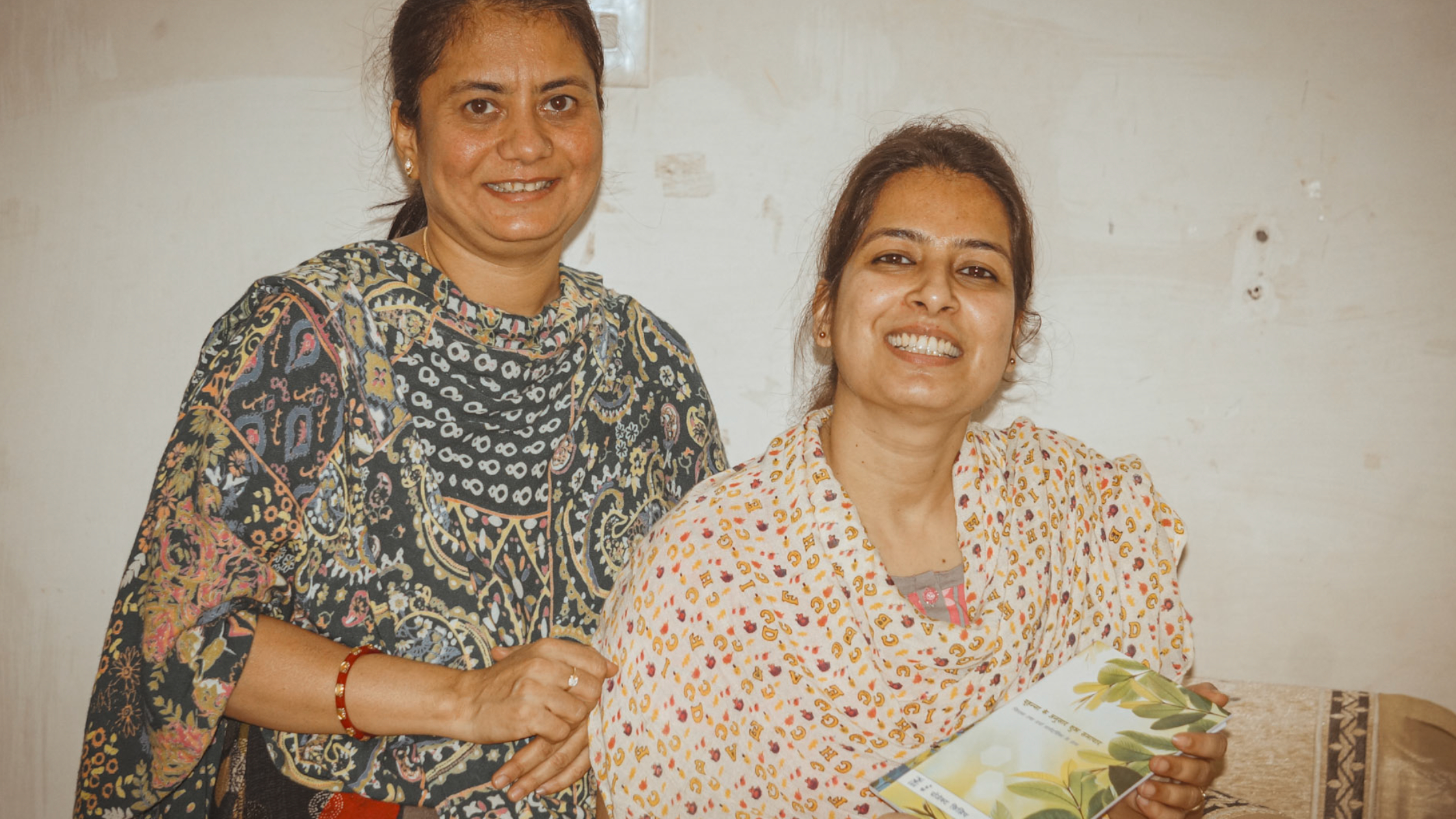
Chandan (right) and her elder sister, a believer, who has been her confidante and constant support during difficult times.
Chandan comes from an affluent, educated family and belongs to the upper caste. She holds a Master’s degree and works in a computer institute.
Despite the cultural norms that often relegate women to the background, Chandan was thrust into leadership. Initially hesitant, she grappled with the idea of a woman preaching and leading a congregation. “Raising your voice and preaching was not my thing,” she confessed. “I had a lot of negative things.”
However, Chandan’s passion for God’s Word and her natural leadership abilities could not be suppressed. With the encouragement of Bible League’s pastor Mahendra, she embraced her calling. “He saw my gift and encouraged me,” Chandan recalled. “He did not differentiate me.”
Bible League’s support was instrumental in Chandan’s growth as a leader.
She gained the confidence and skills to lead her congregation effectively through training programs and mentorship.
She was part of the Church Planter Training, which helped her study the Bible. Without this training, she said studying God’s Word was impossible. “I have always been good in my studies. I had desired to study the Bible. I have never thought of being a Bible teacher. Thanks to the training by Bible League, I’m now leading a house church,” she reminisced.
Despite the closure, she continues to conduct online church services until the situation improves.
The Rising Tide of Intolerance
Chandan’s story, like Mahesh’s, highlights the precarious situation of Christians in India. Believers are caught in a crossfire between religious extremists and a government that seems increasingly unable—or unwilling—to protect them.
As I traveled through the state, I heard many stories of discrimination, intimidation, and violence.
Pastors were being arrested on trumped-up charges, churches were being vandalized, and Christians were being ostracized from their communities. The situation was dire, and it was only getting worse.
The rise of Hindu nationalism in India has created a hostile environment for religious minorities. The ruling Bharatiya Janata Party (BJP), with its roots in Hindu nationalist ideology or Hindutva, has been accused of turning a blind eye to the violence and discrimination against Christians.
The international community has expressed growing concern over the deteriorating situation for Christians in India. The United States Commission on International Religious Freedom (USCIRF) has recommended that India be placed on its red list for “severe violations of religious freedom.” However, the Indian government has vehemently denied these allegations, claiming that it respects the rights of all religious groups.
Despite the challenges, the Christians I met in central India remain steadfast in their faith. They continue to worship, pray, and share the Gospel, even at great personal risk. Their resilience and courage in the face of adversity are a testament to the power of God’s Word.
We need your prayer and generosity to uplift our brothers and sisters who are laboring for Christ in some of the most dangerous places for Christians. The Gospel continues to spread, no matter what comes against it. The Church is growing, and our brothers and sisters need prayer.
Think of the light in the eyes of those learning to read, finding their first words in the Scripture, a promise of liberation from illiteracy and the chains that bind them. Consider the strength it could offer to communities fighting against social evils, armed with the enduring truth of God’s timeless Word.
A Glimmer of Hope
As I left the little town in northern India, I carried with me a profound sense of both sorrow and hope: sorrow for the suffering of those targeted for their faith and hope that their voices will not be silenced. The stories of Mahesh, Chandan, and countless others remind me that even in the darkest times, the light of faith can shine through.
I am reminded of the devastating and unprecedented religious violence in the northeastern state of India, Manipur, where more than 300 churches were burned, several hundred of Christians were brutally killed, and thousands were displaced in 2023.
The persecution of Christians in India is a complex issue with deep historical and social roots. It is a problem that cannot be solved overnight. The journey through central India was a sobering reminder of the cost of following Jesus in a land where faith is often met with hostility. But it also reaffirms the strength and resilience of those who choose to walk this difficult path, holding fast to their faith in the face of overwhelming adversity.
In the face of persecution, Jesus’ words in the book of Matthew ring true: “I will build my church, and the gates of hell shall not prevail against it.”
The story of India’s Christians is a testament to this enduring promise.
- Pray for our Indian team, that continues to serve in more than 15 states, many of which are increasingly hostile towards Christians.
- Pray that the ministry of Bible League in India will continue to thrive despite opposition and persecution.
- Pray that there will be open doors to distribute Bibles, train pastors, and share the Gospel with those who have not yet heard the message of salvation.
- Pray that government authorities treat Christians fairly and that religious freedom is upheld in India.
Based on a resource-gathering trip to central India in May 2024, in a state hostile to Christians (specific location withheld for security reasons).




